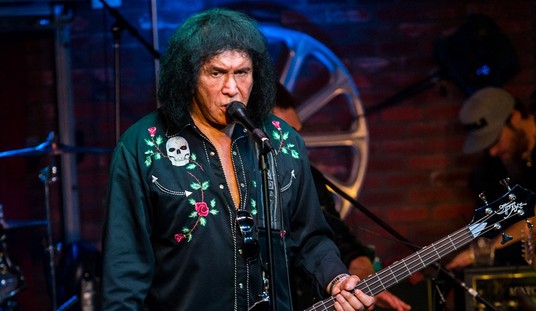Thus the London Telegraph‘s Charles Moore on Barack Obama. It’s a thoughtful and largely sympathetic piece. But it articulates a powerful . . . what to call it? Reservation? Misgiving? Uneasiness? Everyone knows that “The Audacity of Hope” is the title of one of Obama’s memoirs (he’s written two). Mr. Moore reminds that the phrase comes from a sermon by Obama’s close clerical friend Rev. Jeremiah Wright. Once it emerged that Rev. Wright also preached that black people should sing not “God Bless America!” but “God Damn America!” Obama quietly distanced himself from his pastor.
But as Mr. Moore saw, the Jeremiah Wright episode did raise an important question:
are black politics in America still defined by their hatred of white domination? If Obama’s politics are “black” in that sense, he does not stand a chance.
Mr. Moore continues:
What is so fascinating in this contest is that no one has thought more about this than Barack Obama himself. It is the subject matter of Dreams From My Father [Obama’s earlier memoir]. Half white American liberal puritan, half feckless, clever, disappointed Kenyan, he searches for his roots.
And what has he found? And what, more to the point, have Obama’s supporters found? What does it mean, for example, to suggest that if you are not a supporter of Obama then, ipso facto, you must be racist? That popular scenario–what we might call the Wright Protocol–is the real racist alternative, for it would have us believe that we should support Barack Obama because of the color of his skin, not because of his policies, promise, or accomplishments.
There is an undeniable romance about Barack Obama’s story. It’s an important part of his appeal. But the question that haunts his campaign–a question that has been asked with increasing urgency as the campaign unfolds–revolves around the issue of identity: Who is Barack Obama? What, deep down, does he stand for? To what has he plighted his highest allegiance?
These are not questions that are easily answered. “In a remote area of Kenya,” Mr. Moore continues,
where his grandfather lived when not working as a cook for the British Army, he learns the family history. In this cradle of the human race, he longs for “that first common step, that first common word – that time before Babel”.
Yet the history of his parents – he met his father only once after he left home when he was tiny – is of fracture. It is all the story of “the puzzle of being a black man”. Barack falls on the ground and cries out to his father’s ghost: “There was no shame in your confusion.”
The implication of the book is that Obama, by understanding the unrealised dreams from his father properly, can somehow fulfil them in and for the United States of America. The intoxicating thought that it might be true is what makes so many of us want Mr Obama to win.
Indeed. As Hemingway said at the end of The Sun Also Rises, It would be pretty to think so. “But what,” Charles Moore asks, “if it isn’t true?”
In the book, Obama introduces the Kenyan phrase “home squared”. It means the place – in the Kenyan case, your tribal village – which you think of as your real home, though you live in the big city.
For Obama, it is “home cubed” – from America to Nairobi to the village. It sounds like the great dream of “from log cabin to White House”. The trouble is that its direction is the reverse; it seems to take him away from America.
So Americans, who actually have to decide what all this means, have a much more serious task than we do. It will not prove that they are bigots if they decide that Barack Obama is too big a risk.
I somehow doubt that the folks from MoveOn.org will be quite so understanding.









Join the conversation as a VIP Member